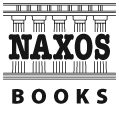|
Advertising on Musicweb |
Please support our advertisers below by clicking on the logos for further information.

All Naxos reviews

All Lyrita reviews

All Nimbus reviews

All Hyperion reviews

All First Inversion reviews
(formerly Divine Art)

All Forgotten Records reviews

All cpo reviews

All Convivium reviews

All SOMM reviews

All APR reviews

All Chandos reviews
This review has been republished as a Déjà Review on the new Musicweb site.
The review can be found here.
 |
 |
 |
 |


